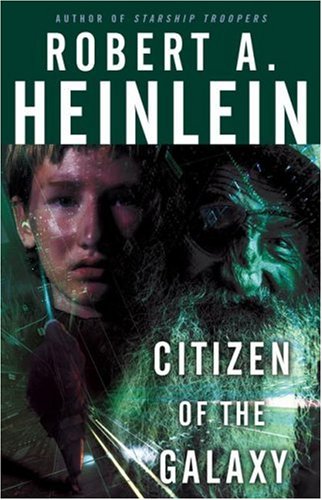Michael Dirdas Science Fiction Reading List
Explore Michael Dirda's top science fiction picks with this curated reading list. Discover must-read books from classic to contemporary sci-fi, handpicked by the renowned critic.

Book
Bound to Please
by Michael Dirda
A showcase of one hundred of the world's most significant books offers the author's introductory essays on such writers as James Boswell, Colette, and Joseph Roth, and includes explorations of a range of genres and specific works.


Book
Last and First Men
by Olaf Stapledon
One of the most extraordinary, imaginative and ambitious novels of the century: a history of the evolution of humankind over the next 2 billion years. Among all science fiction writers Olaf Stapledon stands alone for the sheer scope and ambition of his work. First published in 1930, Last and First Men is full of pioneering speculations about evolution, terraforming, genetic engineering and many other subjects.

Book
More Than Human
by Theodore Sturgeon
In this genre-bending novel—among the first to have launched sci-fi into the arena of literature—one of the great imaginers of the twentieth century tells a story as mind-blowing as any controlled substance and as affecting as a glimpse into a stranger's soul. There's Lone, the simpleton who can hear other people's thoughts and make a man blow his brains out just by looking at him. There's Janie, who moves things without touching them, and there are the teleporting twins, who can travel ten feet or ten miles. There's Baby, who invented an antigravity engine while still in the cradle, and Gerry, who has everything it takes to run the world except for a conscience. Separately, they are talented freaks. Together, they compose a single organism that may represent the next step in evolution, and the final chapter in the history of the human race. As the protagonists of More Than Human struggle to find out who they are and whether they are meant to help humanity or destroy it, Theodore Sturgeon explores questions of power and morality, individuality and belonging, with suspense, pathos, and a lyricism rarely seen in science fiction. Winner of the Hugo, Nebula, and International Fantasy Awards

Book
The Stars My Destination
by Alfred Bester
In this pulse-quickening novel, Alfred Bester imagines a future in which people "jaunte" a thousand miles with a single thought, where the rich barricade themselves in labyrinths and protect themselves with radioactive hit men--and where an inarticulate outcast is the most valuable and dangerous man alive.


Book
A Canticle for Leibowitz
by Walter M. Miller (Jr.)
The winner of the 1961 Hugo Award for Best Novel, Miller's bestselling work is a true landmark of 20th-century literature--a chilling and still-provocative look at a post-apocalyptic future.


Book
The Three Stigmata of Palmer Eldritch
by Philip K. Dick
In this wildly disorienting funhouse of a novel, populated by God-like--or perhaps Satanic--takeover artists and corporate psychics, Philip K. Dick explores mysteries that were once the property of St. Paul and Aquinas. His wit, compassion, and knife-edged irony make The Three Stigmata of Palmer Eldritch moving as well as genuinely visionary.

Book
The Left Hand of Darkness
by Ursula K. Le Guin
50TH ANNIVERSARY EDITION—WITH A NEW INTRODUCTION BY DAVID MITCHELL AND A NEW AFTERWORD BY CHARLIE JANE ANDERS Ursula K. Le Guin’s groundbreaking work of science fiction—winner of the Hugo and Nebula Awards. A lone human ambassador is sent to the icebound planet of Winter, a world without sexual prejudice, where the inhabitants’ gender is fluid. His goal is to facilitate Winter’s inclusion in a growing intergalactic civilization. But to do so he must bridge the gulf between his own views and those of the strange, intriguing culture he encounters... Embracing the aspects of psychology, society, and human emotion on an alien world, The Left Hand of Darkness stands as a landmark achievement in the annals of intellectual science fiction.





Book
Neuromancer
by William Gibson
Case, a nerve-damaged data thief, is recruited by a new employer for a last-chance run against a powerful artificial intelligence.

Book
The Science Fiction Hall of Fame, Volume One 1929-1964
by Robert Silverberg
Twenty-six of the greatest science fiction stories ever written. Robert Heinlein in "The Roads Must Roll" describes an industrial civilization of the future caught up in the deadly flaws of its own complexity. "Country of the Kind," by Damon Knight, is a frightening portrayal of biological mutation. "Nightfall, " by Isaac Asimov, one of the greatest stories in the science fiction field, imagines a planet where the sun sets only once every millennium and is a chilling study in mass psychology.